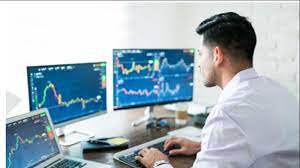
Social Trading: The Democratization of Online Trading
Online trading has come a long way since the days of Wall Street’s iconic trading floors. While traditional trading has often been seen as the domain of financial experts and institutions, a new trend is emerging that is changing the way people participate in financial markets: social trading.
What is Social Trading?
Social trading, often referred to as copy trading or mirror trading, is a concept that harnesses the power of social media and online communities to democratize trading. It allows individuals, regardless of their financial expertise, to connect with experienced traders and replicate their strategies in real-time. This approach enables even novices to access the world of trading and potentially profit from the markets.
Key Features of Social Trading:
Accessibility: Social trading makes trading accessible to a broader audience, as users can follow and learn from experienced traders, even without in-depth knowledge of financial markets.
Transparency: The transparency of social trading platforms allows users to view the performance and risk levels of various traders before deciding to follow or copy them.
Community Interaction: Social trading platforms typically include features for user interaction, enabling discussions, sharing of insights, and learning from one another.
Diverse Asset Classes: Social trading encompasses various asset classes, from stocks and forex to cryptocurrencies and commodities, giving users a wide array of options to choose from.
Risk Management: Users can tailor their risk management settings, allowing them to control their exposure and potentially limit losses.
The Popularity and Growth of Social Trading:
The concept of social trading has rapidly gained popularity. online trading platforms that facilitate social trading have seen substantial growth, attracting both novice and experienced traders. The ability to profit by following successful traders or to earn a commission as a popular trader has incentivized users to engage in social trading networks.
Challenges and Considerations:
While social trading offers an exciting avenue for participation in financial markets, it’s important for users to exercise due diligence. Not all traders are equally skilled, and even the most successful traders can experience losses. It’s crucial for individuals to understand their risk tolerance and tailor their approach to match their financial goals.
The Future of Social Trading:
Social trading is poised for continued growth and innovation. As platforms continue to evolve, users can expect improved features, more advanced analytics, and the integration of artificial intelligence and machine learning to enhance decision-making. Additionally, regulatory bodies are beginning to recognize the importance of overseeing social trading platforms to ensure fairness and security for all users.
In conclusion, social trading is reshaping the landscape of online trading by making it accessible to a broader audience and creating a sense of community among traders. With the continued growth and development of social trading platforms, the future of online trading promises to be more inclusive, interactive, and collaborative, providing opportunities for individuals to engage in financial markets in a more informed and interconnected manner.